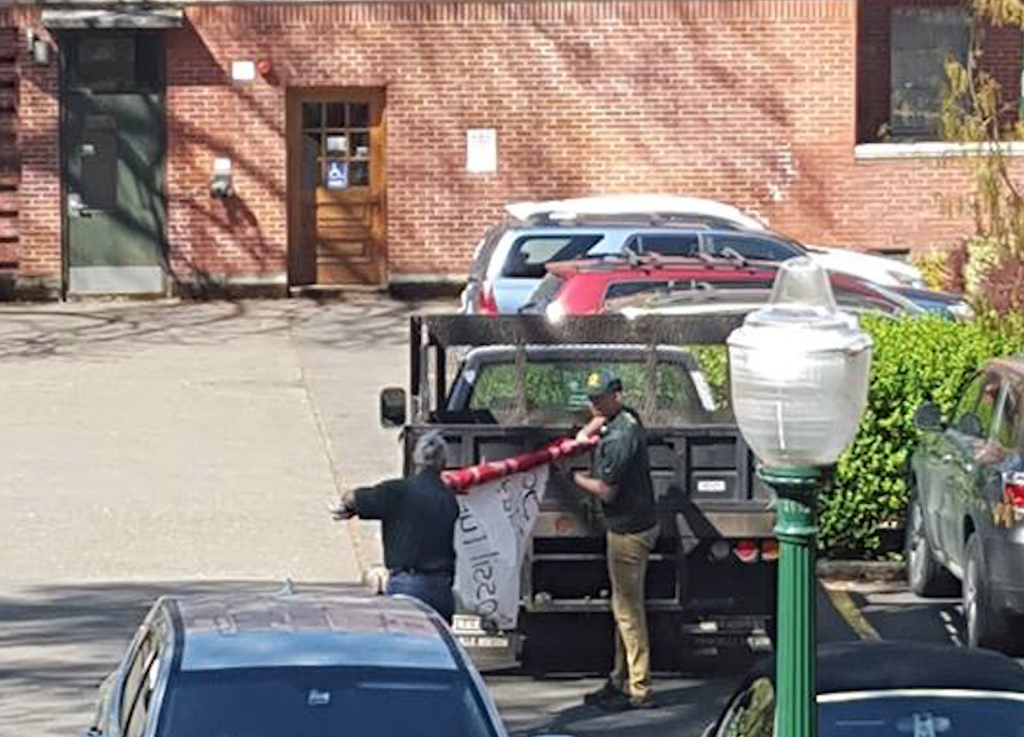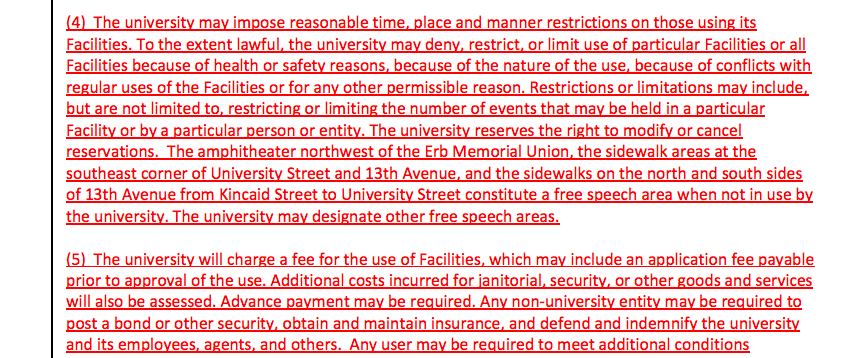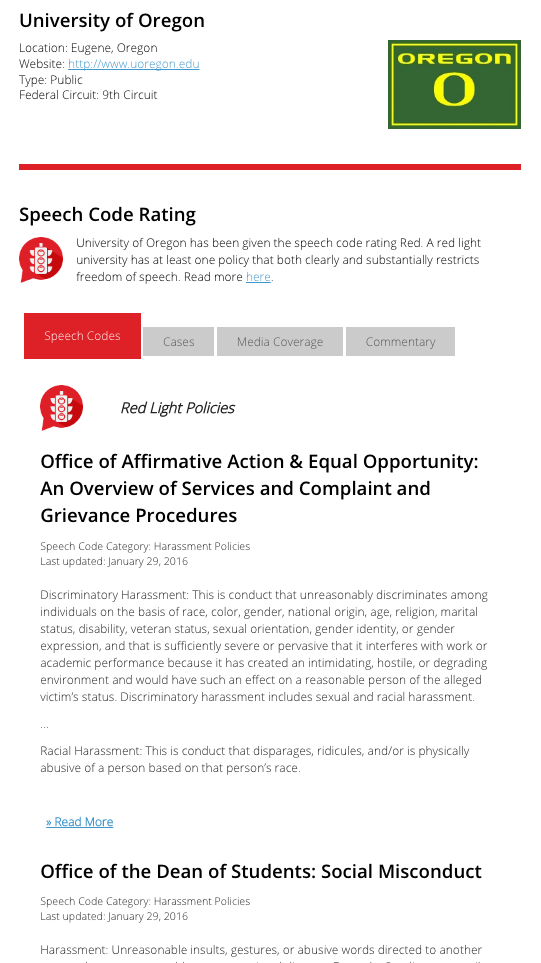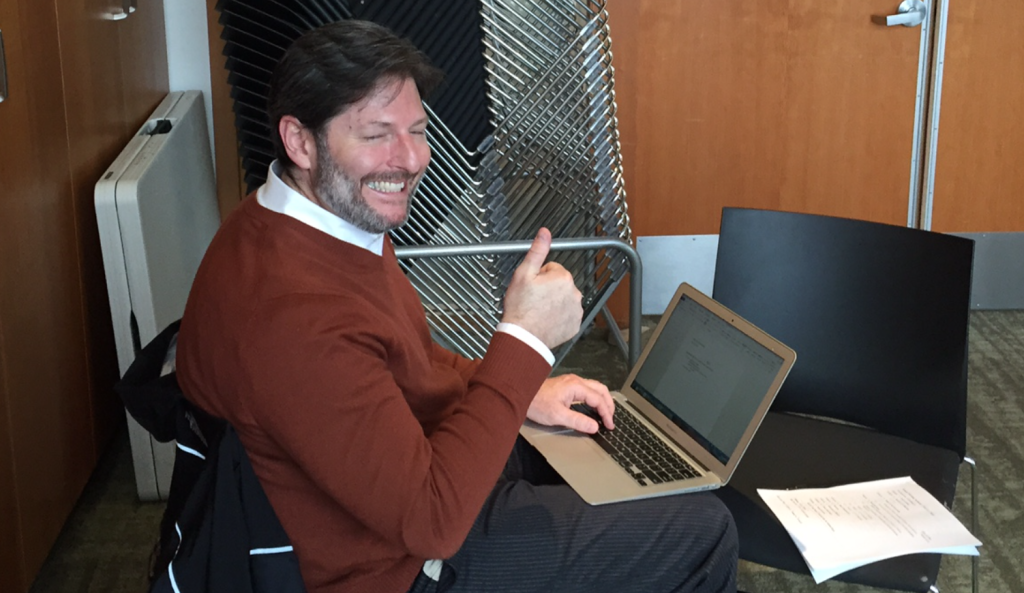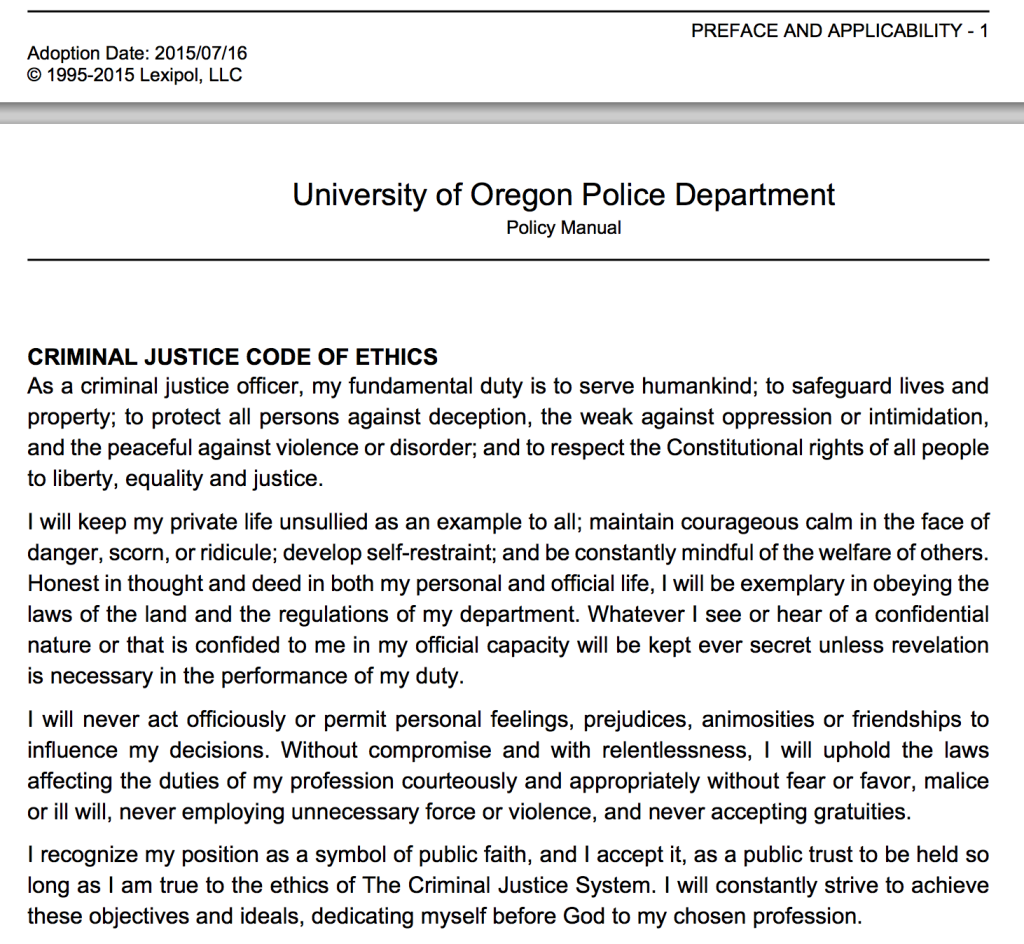10/17/2017 update:
I’m no law professor, but I think this is the reverse of the preferred sequencing.
Page down for the video of UO spokesperson Tobin Klinger last Friday, declaring that “the demonstration actually violated university policy”. Today the “UO Student Collective” facebook page posts this message from Sandy Weintraub, Director of Student Conduct, calling one of the students into his office to begin the process of an investigation under the student conduct code:
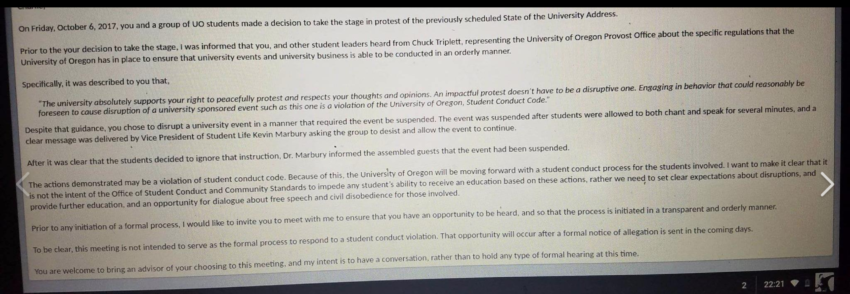
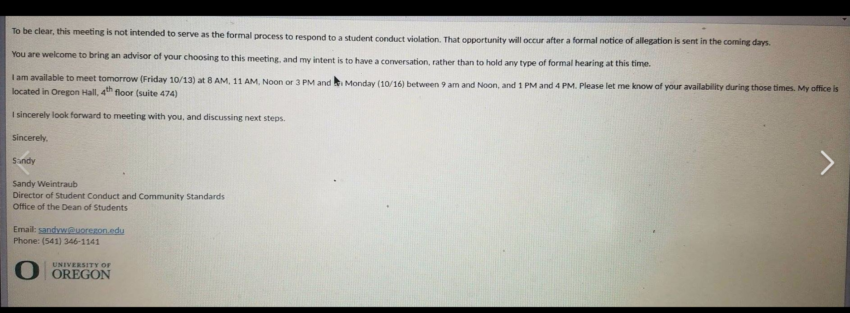
On Oct 15, Senate President Sinclair wrote UO President Schill the following:
Dear President Schill:
I’ve had a number of conversations around campus with both students and faculty regarding the student protest of the State of the University address.
Here are some reflections:
The statement from Tobin Klinger to the Oregonian that the protest was in violation of the student conduct code is unhelpful and has irritated many faculty. Faculty see Klinger as an un-academic public relations spokesperson who has little credibility with the students or the faculty. However, he is an official spokesperson, and so we assume he was speaking for the administration. As such his statement could be taken as an abrogation of due process. This removes the veil of faculty oversight of student discipline, and there is simmering resentment that this power was taken from faculty by the Board of Trustees. Any unilateral administrative establishment of discipline on an issue that revolves around speech is a hornets nest that is best left un-kicked. We do understand that it may sometimes be necessary to “read the riot act” to students to notify them (or others) that continued assembly will be dealt with under the student conduct code.
My recommendation would be to have Tobin clarify his remarks and to state publicly that the university has no plans to charge any of the students in the protest with any conduct violation. Were actual conduct charges to be brought, I do not think you would have the support of the majority of the faculty nor students, and I think the Senate would react in a manner which you would find unproductive. A couple senators have already threatened a resolution to be introduced next Wednesday; we have a busy agenda that day and I would prefer to stay on task.
As you know, I have invited [the UO student collective] to come to the Senate for a brief 5-minute presentation followed by a 5-minute question and answer period. [The UO student collective] has not responded yet. In conversation with faculty, more individuals agree that this is the correct course of action for the Senate than agree with you that this is rewarding bad behavior. I will not argue that we are not rewarding bad behavior, because I see your point, but I think more people are moved by the argument that these students have fewer avenues to air their grievances than you or I, and that this was a legitimate protest.
I have been reflecting on my formal invitation of this student group to the next Senate meeting. Had I a do-over, I would take the advice of Frances White and merely indicate to this group that the Senate is a public forum on campus and that any group of students should be able to get on the agenda (with instructions on how to do so). This would allow the students an avenue for a public conversation without officially sanctioning it. I am unwilling to rescind my invitation to the student group, but I will hold onto this lesson for future use.
Thanks for considering my recommendations and for helping find a productive way out of this tricky situation,
Chris Sinclair, Assoc. Prof. Math, Senate President University of Oregon
Meanwhile, on the same day as the protest, the administration updated its website on Time, Place and Manner restrictions on free speech. They are calling these guidelines and procedures, not policies, because they agreed last year not to implement them as a policy, after the Senate raised numerous objections.
Until 2014, the UO Faculty had responsibility for the Student Conduct code. The Board of Trustees took that away from us as part of their Delegation of Authority, helped out by the faculty board member Susan Gary (Law) who failed to notify the faculty about the power-grab.
The new student conduct code even allows the administration to modify the procedures retroactively, and apply them to existing student discipline cases:
All revisions to Student Conduct Code procedures, including but not limited to jurisdictional revisions, shall apply retroactively to pending Student Conduct complaints, filed on or after September 11, 2014
10/12/2017 update: Student Conduct Judge Tobin Klinger finds protest violated conduct code
Just kidding. Tobin Klinger is UO’s chief PR flack, not a Student Conduct Judge. He is not responsible for enforcing the student conduct code, nor has anyone at UO conducted any sort of investigation as to whether or not the student conduct code was violated, or whether any such violation was significant enough to supersede the UO policies on freedom of speech and academic freedom.
So what in the world was Klinger doing, in his official capacity as UO spokesperson, telling an Oregonian reporter 5 minutes after the administration suspended President Schill’s speech, that
“.. the demonstration actually violated university policy…”
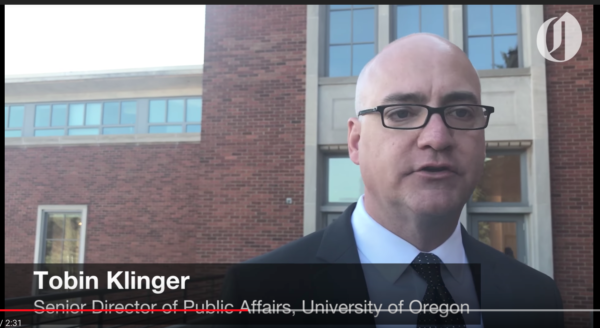
Speaking in my private capacity as a blogger, I think the administration can make a plausible case that it did violate the code (and the Freedom of Inquiry and Speech policy). If that case succeeds they can then discipline the students accordingly.
But that case is going to be harder to make given this official statement from Klinger, which the students can argue is prejudicial.
10/9/2017 update: Small, ineffective, and reflects poorly on the student body
The Oregon Daily Emerald editorial board rarely posts editorials. They have written a good one on Friday’s protest:
